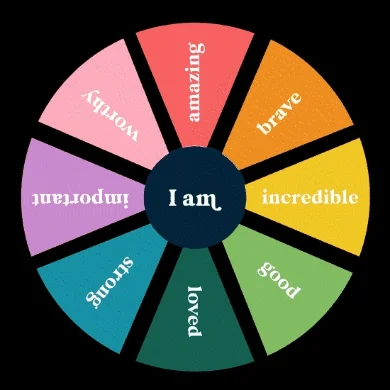You're the next speaker in line and your body has already cued the anxiety signals: sweaty palms, racing heart, a dry mouth.
These symptoms are signs of stage fright. Most people experience stage fright at least once in their lives.

Try mindfulness exercises to help you manage your stage fright.
What Is Mindfulness?
Mindfulness is a practice that involves being aware of your current experience by focusing on your breath or other sensations instead of your immediate thoughts.
 Benefits of using mindfulness exercises to help with stage fright:
Benefits of using mindfulness exercises to help with stage fright:
Focus on the present moment
Calm your nervous system
Practice self-compassion and acceptance
Better control of your emotions

Disadvantages to not practicing mindfulness:
Focus on anxiety-inducing thoughts
Stay nervous by focusing on negative thoughts
Self-criticize your work
Difficulty regulating your emotions
Mindfulness Exercise #1: Meditation

Practicing meditation on a daily basis can help reduce stress, build mental resiliency,and create a deeper self-awareness.
If you're trying meditation for the first time, it can feel uncomfortable and awkward. But, with practice, you'll get better.
Meditation tips for beginners:
Find a comfortable, distraction-free space to mediate.
Sit for just two minutes. Gradually increase your meditation time.
Don't worry about the "how", just focus on breathing.
Meditate at the same time each day.
Use a guided mediation recording, like Insight Timer or Headspace.
Mindfulness Exercise #2: Box Breathing
The best way to calm your nerves is to slow your breathing. Trybox breathing to help you lessen your fears before going on stage.

How To Box Breathe
Before starting, sit upright in a comfortable, stress free environment. Keep your feet apart on the ground. Place your hands in your lap.
Step 1: Slow Exhale
Slowly let out a breath from your mouth, counting slowly to 4. Try your best to focus only on your breath.
Step 2: Slowly Inhale
Inhale slowly through your nose, again counting slowly to 4. Feel the air enter your nostrils and fill your lungs.
Step 3: Hold Your Breath
Hold your breath for a slow count of 4.
Step 4: Exhale Again
Exhale slowly to a count of 4, releasing the air from your lungs. Pay attention to the way the air feels leaving your lungs.
Mindfulness Exercise #3: Visualization
Imagine hearing the roar of applause after you've delivered an inspiring speech. Or imagine your loved ones smiling at you in the crowd.
Your mind and imagination are powerful tools that you can use to boost your confidence and ease your nerves.
Before you take the stage, close your eyes and picture these scenarios happening after your speech:
A standing ovation
Smiling faces in the crowd
A bouquet of flowers from a friend
Standing tall and breathing calmly
The collective sound of laughter at your jokes

Mindfulness Exercise #4: Affirmations
You become what you believe about yourself. Even if you don't feel confident, you can convince yourself that you're capable of being a successful speaker by repeating affirmation statements.

Right before you talk to a room full of strangers, be sure to repeat a few of the following affirmations to help you feel calm and confident:
I am prepared, and I am enough.
I am confident and capable.
Each breath I breathe brings me more peace.
I am focused and in control.
I embrace progress over perfection.
I release fear and embrace the moment.
Mindfulness Exercise #5: Grounding
If you've ever experienced stage fright, you've probably felt like you weren't in control of your body. I've felt this way countless times because I didn't use mindfulness exercises to prepare.
To limit your stage fright, try this grounding exercise to help you stay in the present moment right before you take the stage.
Five Senses Grounding
Look around you and silently name the following:
5 things you can see
4 things you can touch
3 things you can hear
2 things you can smell
1 thing you can taste

Mindfulness Exercise #6: Self Compassion
After you've made it through your presentation, reflect on your performance with compassion. If you're like me, you're quick to judge yourself right after your presentation. However, criticizing your performance will take away from the good work you've done.
Self-Compassion Check-In
Try the mindfulness exercises below to help you stay present and positive:
Take in a big breath and exhale slowly.
Reflect with compassion. Ask yourself: How did I feel? What went well?
Journal about your experience, focusing on the positive moments.
Try the RAIN technique.

Quiz
Emma has a history of stage fright. What activity will best help Emma manage her stage fright for her presentation tomorrow?
Take Action
Your feedback matters to us.
This Byte helped me better understand the topic.

